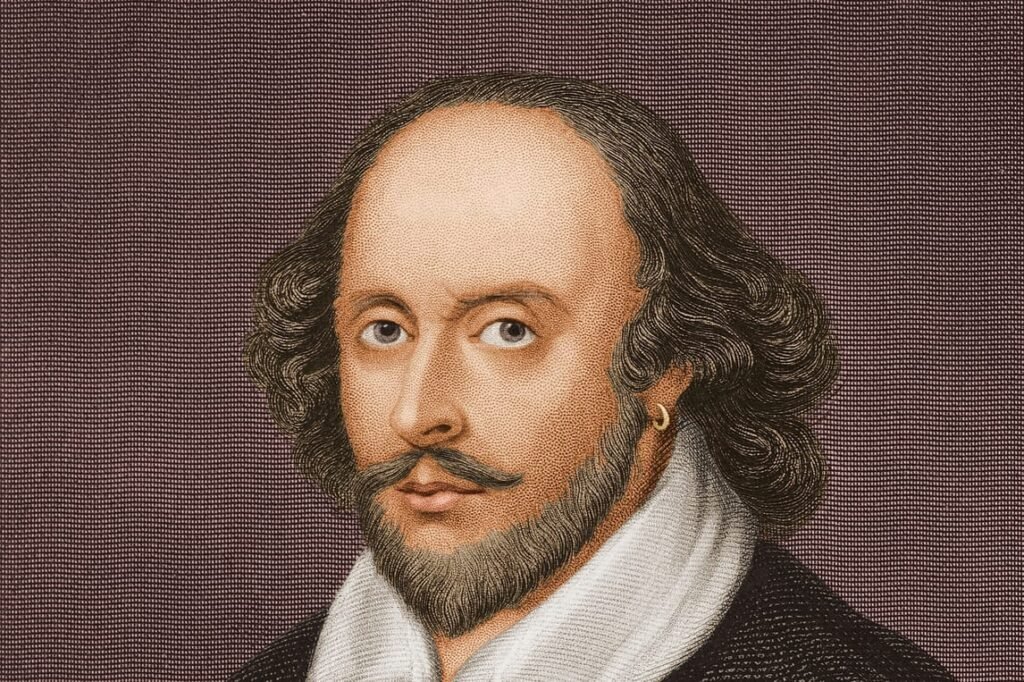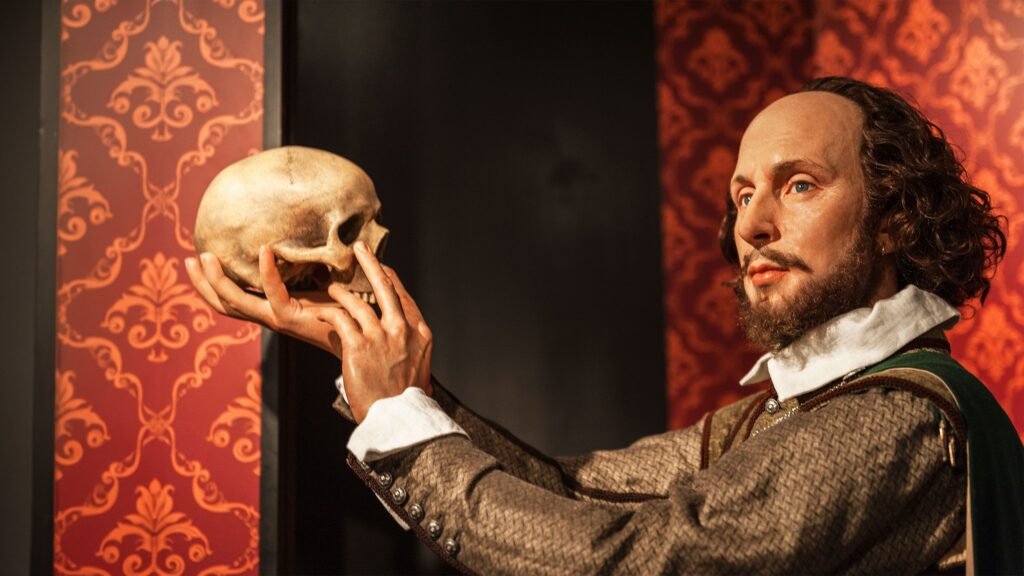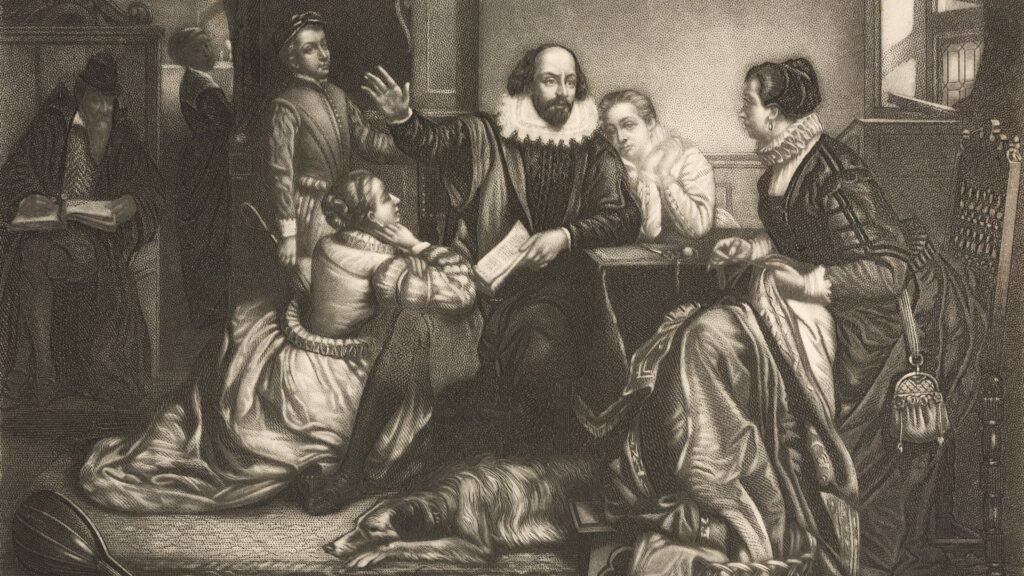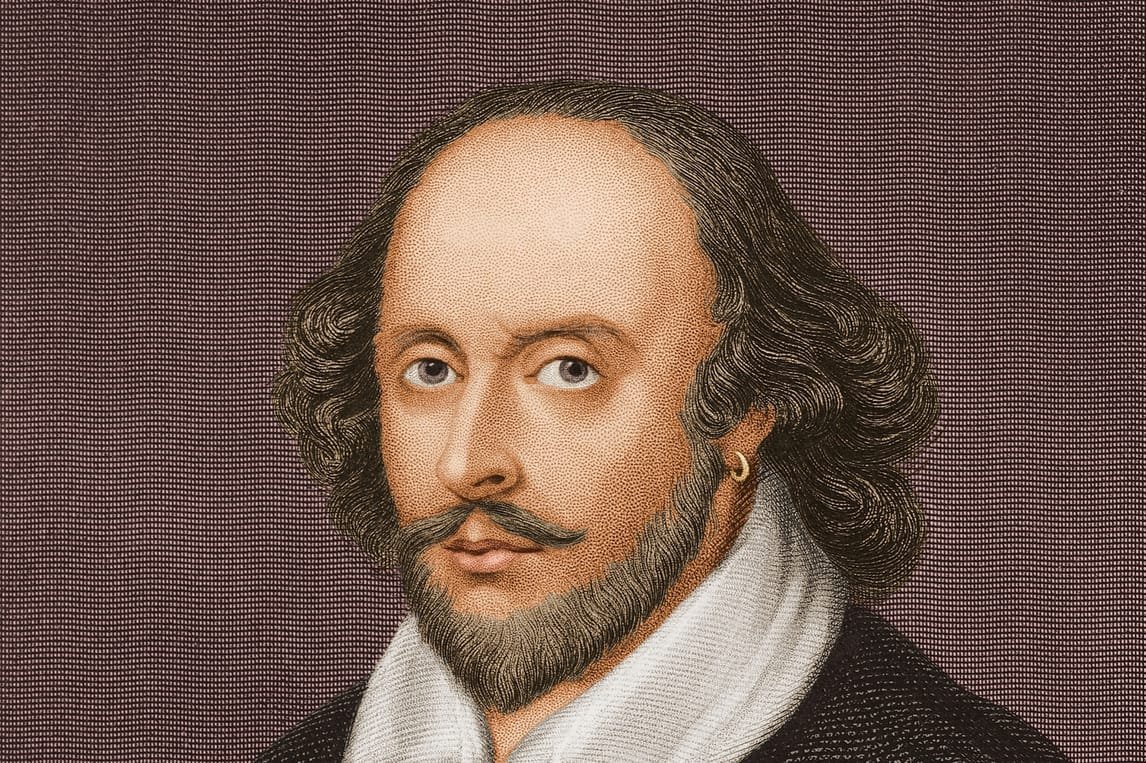Top 50 Unknown and Interesting Facts About William Shakespeare
William Shakespeare, who was born in Stratford-upon-Avon in 1564, is recognized as one of the finest poets and playwrights in English history. Often referred to as the “Bard of Avon,” his writings have influenced theater and literature for more than 400 years.
Shakespeare wrote 39 plays, 154 sonnets, and many more pieces throughout the Elizabethan and Jacobean periods, when his career was at its height. His plays include tragedies like Hamlet, Macbeth, and Othello as well as comedies like A Midsummer Night’s Dream and Twelfth Night. Along with writing historical plays, he combined politics, drama, and power battles in Henry V and Richard III.

Shakespeare’s examination of universal themes, such as love, ambition, jealousy, and betrayal, along with his elegant use of language, is what makes his works ageless. His characters are approachable and multifaceted, and he has influenced theater, cinema, and even books.
This blog will take you through the top 50 unknown and interesting facts about William Shakespeare, delving into his personal life, his work, and the enduring impact of his legacy.
1. Shakespeare’s Birth is Celebrated on April 23, 1564
Although there are no official records of his birth, historians celebrate William Shakespeare’s birthday on April 23, 1564. It’s an estimated date based on his baptism, which was recorded on April 26, 1564, at Holy Trinity Church in Stratford-upon-Avon.
2. He Died on His Birthday
In a strange twist of fate, William Shakespeare died on April 23, 1616, at the age of 52, exactly on the same day as his supposed birthday.
3. Shakespeare’s Parents Were Illiterate
John Shakespeare, William’s father, was a successful glove-maker and local politician, and his mother, Mary Arden, came from a wealthy family. However, neither of his parents could read or write.
4. He Had Seven Siblings
William was the third of eight children in the Shakespeare family. His siblings were Joan, Margaret, Gilbert, Joan (named after their deceased sister), Anne, Richard, and Edmund.
5. Married at 18
Shakespeare married Anne Hathaway in 1582 when he was only 18 years old. Anne was 26 at the time and pregnant with their first child, Susanna.
6. Shakespeare Had Three Children
Shakespeare and Anne Hathaway had three children. Their first daughter, Susanna, was born six months after their wedding, followed by twins, Hamnet and Judith, in 1585.
7. Hamnet Died at 11
Shakespeare’s only son, Hamnet, died in 1596 at the age of 11. Some scholars believe the grief over his son’s death influenced his writing, particularly in Hamlet.
8. He Never Attended University
Despite his vast knowledge and command of the English language, there’s no record that Shakespeare attended university. His formal education ended at grammar school in Stratford, where he studied Latin, literature, and rhetoric.
9. Shakespeare’s “Lost Years”
Between 1585 and 1592, there are no records of Shakespeare’s activities, a period known as his “Lost Years.” Historians have speculated that he might have worked as a teacher, a soldier, or even a poacher during this time.
10. He Introduced Over 1,700 Words to the English Language
Shakespeare had an incredible ability to coin new words and phrases. Some of the words he introduced include “bedazzled,” “swagger,” “lonely,” and “addiction.” These words are still in common usage today.
11. Shakespeare Was an Actor
In addition to being a playwright, Shakespeare was also an actor. He was a member of the Lord Chamberlain’s Men, a playing company, where he performed in many of his own plays.
12. The Globe Theatre
Shakespeare was a part-owner of the Globe Theatre in London. The theatre opened in 1599 and became the venue where many of Shakespeare’s plays were performed.
13. The Globe Theatre Burned Down
During a performance of Henry VIII in 1613, a cannon used for special effects misfired, setting the Globe Theatre on fire. The theatre was completely destroyed, but it was rebuilt the following year.
14. Shakespeare’s Works Were Not Published in His Lifetime
Though his plays were performed during his life, Shakespeare did not publish any of his works. His plays were collected and published posthumously by his friends in 1623, seven years after his death, in what is known as the First Folio.
15. The First Folio
The First Folio contained 36 of Shakespeare’s plays. Without this collection, many of his works, including Macbeth and The Tempest, might have been lost forever.
16. Shakespeare Wrote 154 Sonnets
In addition to his plays, Shakespeare wrote 154 sonnets. These sonnets explored themes of love, time, beauty, and mortality and are still widely studied today.
17. Shakespeare’s Grave is Cursed
Shakespeare was buried at Holy Trinity Church in Stratford-upon-Avon. His grave bears a chilling epitaph that curses anyone who moves his bones. It reads:
“Good friend, for Jesus’ sake forbear,
To dig the dust enclosed here.
Blessed be the man that spares these stones,
And cursed be he that moves my bones.”

18. The Identity of the “Dark Lady”
Many of Shakespeare’s sonnets are addressed to a mysterious “Dark Lady.” Scholars have long debated her identity, but no one knows for sure who she was.
19. Shakespeare Didn’t Always Write Alone
Though Shakespeare is credited with writing 39 plays, he likely collaborated with other playwrights on several of them, including Timon of Athens and Pericles.
20. Shakespeare’s Influence on the Bible
Though unproven, some scholars believe Shakespeare contributed to the translation of the King James Bible in 1611. His possible influence is often cited in Psalm 46, where the 46th word from the beginning is “shake” and the 46th word from the end is “spear,” coinciding with Shakespeare’s age at the time.
21. Shakespeare’s Legacy in Astronomy
Shakespeare’s works have even inspired astronomers. A total of 24 moons of Uranus are named after characters from his plays, including Miranda, Titania, and Oberon.
22. No Original Manuscripts Survive
Despite his enduring fame, no original manuscripts of Shakespeare’s plays have survived. The only evidence we have of his writing comes from printed editions of his works.
23. He Wrote About 10% of the English Dictionary
Shakespeare’s vocabulary was incredibly vast. It is estimated that he used around 17,000 to 20,000 different words in his works, about 10% of the English language at the time.
24. Shakespeare’s “Problem Plays”
In addition to his comedies, tragedies, and histories, Shakespeare also wrote a group of plays known as “problem plays.” These include All’s Well That Ends Well, Measure for Measure, and Troilus and Cressida, which are difficult to classify within one genre.
25. The “Shakespeare Authorship Question”
Over the centuries, there has been ongoing debate about whether Shakespeare truly authored the works attributed to him. Some theories suggest that figures like Christopher Marlowe or Edward de Vere, the Earl of Oxford, may have written the plays.
26. Queen Elizabeth I Attended His Plays
Queen Elizabeth I, a great patron of the arts, attended several of Shakespeare’s plays. His works were popular among both royalty and the common people of England.
27. Shakespeare’s London
Shakespeare lived in London during a time when it was the largest city in England, with a population of around 200,000. The city was a hub for commerce, politics, and entertainment, which greatly influenced his writing.
28. He Retired to Stratford
Around 1613, Shakespeare retired from the London theatre scene and returned to his hometown of Stratford-upon-Avon, where he lived comfortably until his death in 1616.
29. Shakespeare’s Last Play
The last play Shakespeare is believed to have written alone is The Tempest, which was performed for the first time in 1611. However, he likely collaborated on later works such as The Two Noble Kinsmen.
30. He Wrote in Three Genres
Shakespeare’s plays are typically divided into three categories: comedies, tragedies, and histories. Some of his most famous comedies include A Midsummer Night’s Dream and Twelfth Night, while Romeo and Juliet and Hamlet are examples of his tragedies.
31. Shakespeare Was an Entrepreneur
Shakespeare was not only a playwright and actor but also a successful businessman. He invested in real estate and became a shareholder in the Lord Chamberlain’s Men, ensuring a steady income from his plays.
32. Shakespeare’s Wife Outlived Him
Anne Hathaway outlived Shakespeare by seven years, dying in 1623 at the age of 67. She was buried next to her husband in Holy Trinity Church.
33. Only a Few Portraits of Shakespeare Exist
Despite his fame, only a handful of portraits of Shakespeare are believed to be accurate representations of him. The most famous is the engraving by Martin Droeshout that appears in the First Folio.
34. Shakespeare’s Globe Was Rebuilt
In 1997, a faithful reconstruction of the original Globe Theatre was completed on the south bank of the River Thames in London. It stands just a few hundred yards from the site of the original theatre.
35. Shakespeare’s Plays Are the Most Performed Worldwide
Shakespeare’s plays have been performed more than any other playwright in history. His works are continuously staged in theatres around the world and have been translated into every major language.
36. He Is Quoted More Than Any Other Writer
William Shakespeare is the most quoted writer in the English language. His phrases like “To be or not to be,” “All the world’s a stage,” and “Romeo, Romeo, wherefore art thou Romeo?” are among the most famous quotes in literary history.
37. He Popularized the Use of Iambic Pentameter
Shakespeare’s writing is known for its use of iambic pentameter, a rhythmic scheme that became standard for English poetry. His skillful use of this meter has made his verse both accessible and memorable.

38. Shakespeare Invented “Knock Knock” Jokes
Believe it or not, Shakespeare may have invented the knock-knock joke! In Macbeth, the porter scene contains a series of comedic “knock knock” lines that are thought to be an early form of the now-famous joke.
39. He Created the First “Romantic Comedy”
Shakespeare’s Much Ado About Nothing is considered one of the first romantic comedies, setting a template for a genre that remains popular in modern cinema.
40. Shakespeare’s Influence on Literature
Shakespeare’s influence on English literature cannot be overstated. Writers such as Charles Dickens, Herman Melville, and even modern authors like J.K. Rowling have drawn inspiration from his work.
41. Shakespeare in Pop Culture
Shakespeare’s characters, stories, and themes continue to influence pop culture. Films like The Lion King are based on his works (Hamlet, in this case), and references to his plays appear in countless books, songs, and television shows.
42. Shakespeare’s Sonnets May Be Autobiographical
Many scholars believe that Shakespeare’s sonnets reflect his own experiences and emotions, particularly regarding love and aging. However, their autobiographical nature remains a subject of debate.
43. Shakespeare’s Influence on Modern English
The phrases coined by Shakespeare are so ingrained in modern English that we often use them without realizing their origin. Phrases like “break the ice,” “wild-goose chase,” and “heart of gold” all originated in his plays.
44. The First Folio Is Extremely Valuable
Copies of Shakespeare’s First Folio are some of the most valuable books in the world. In 2020, a copy sold at auction for nearly $10 million, making it the most expensive literary work ever sold.
45. He Was a Master of Puns
Shakespeare was a master of wordplay, particularly puns. His plays are filled with witty language and double entendres that continue to entertain audiences today.
46. Shakespeare’s Spelling Was Inconsistent
There are more than 80 different spellings of Shakespeare’s name recorded in historical documents, including “Shakspere,” “Shakspear,” and “Shaxberd.” Even Shakespeare himself used different spellings of his own name.
47. Shakespeare’s Influence on Political Thought
Shakespeare’s plays have been used to explore political ideas and debates. His works have been interpreted through various political lenses, including Marxism, feminism, and post-colonialism.
48. Shakespeare’s Female Characters Were Played by Men
During Shakespeare’s time, women were not allowed to perform on stage. All female roles in his plays were performed by men or boys, which added an extra layer of comedy or intrigue to some of his works.
49. Shakespeare’s Work Reflects His Time
Although his plays deal with universal themes, Shakespeare’s work also reflects the social and political issues of his time. The influence of the monarchy, religious conflicts, and the role of the individual in society are often central themes.
50. Shakespeare’s Enduring Legacy
Shakespeare’s legacy has endured for more than 400 years, and his influence on literature, theatre, and language shows no sign of fading. His works are studied in schools, performed in theatres, and continue to inspire new generations of readers and writers around the world.
Conclusion: Shakespeare died in 1616, yet his works are still studied and performed all over the world as a testament to his legacy. Shakespeare is a great literary giant because of his unmatched influence on the English language, which is evident in both his literary quotations and everyday idioms.
Shakespeare is still regarded as a literary great whose works cut over boundaries of language, society, and time. His plays and sonnets, with their singular capacity to delve into the human condition, have had a lasting impact on the arts and literature. These 50 little-known facts about Shakespeare offer an insight into the Bard’s life and psyche and demonstrate that, even four centuries after his passing, there is still plenty to discover and value about his enormous contributions to humankind.


